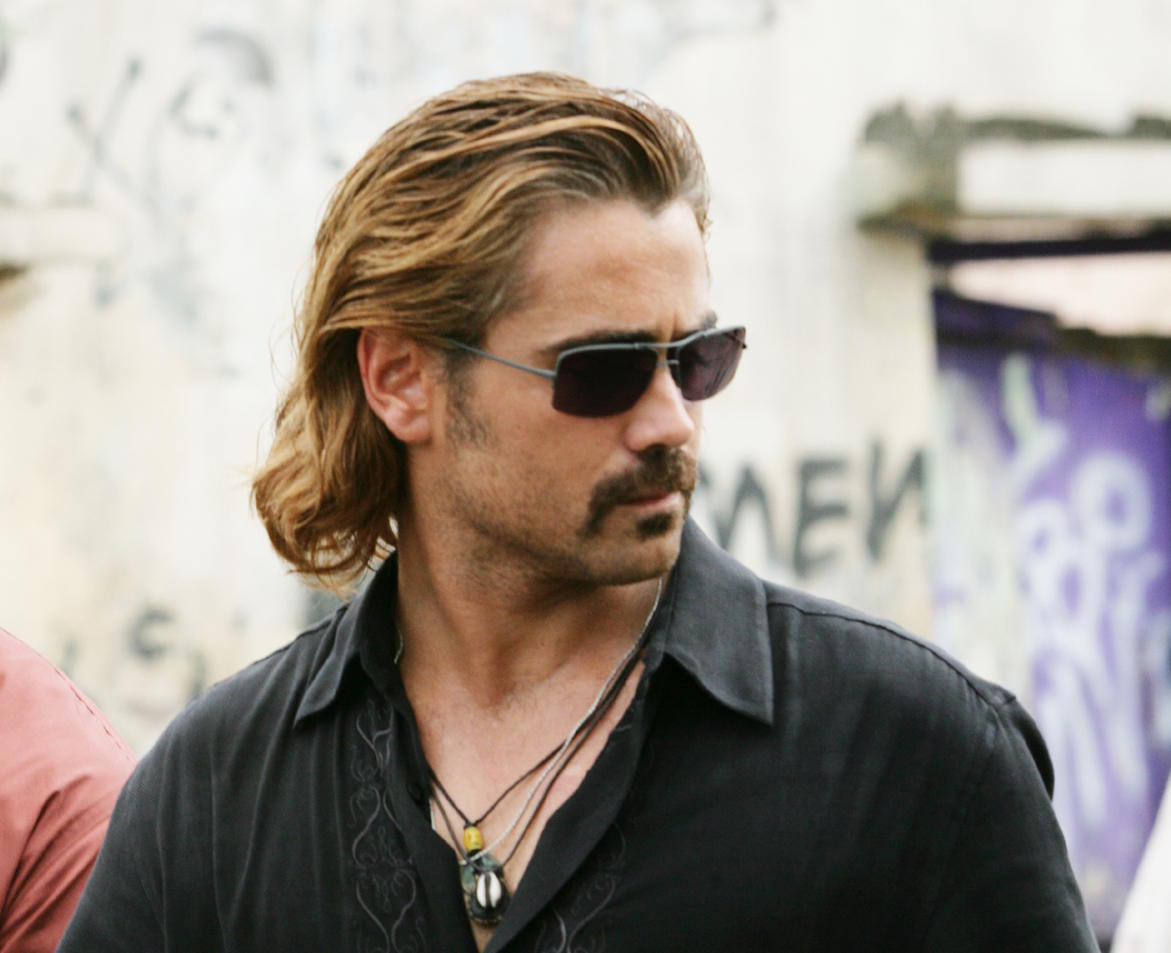According to Spinoza, every vice is nothing more than a problem of ignorance. That is to say, it is simply stupidity - or the blindness of passions - that prevents us from understanding the true nature of things, whose knowledge leads us, mutatis mutandis, to appreciate authentic freedom, a necessary consequence of reason. And so on. It is not clear whether Colin Farrell (Dublin, 1976) received the offer to work on The Banshees of Inisherin, the latest film by Edward Berger based on Lawrence Osborne's novel The Ballad of a Small Player, while reading the Ethics of the Jewish philosopher. In fact, it is not even clear if the offer caught him while reading. "The truth is that I haven't read the novel. I will, I promise, when some time passes. I don't want to find myself comparing the movie to the text," he says. But, as we were saying, few followers as faithful, albeit unconscious, of Spinoza as the Irish actor. "What I am clear about," he says in San Sebastian where the film was presented just after its premiere in Toronto and shortly before its arrival on the Netflix platform, "is that every addiction, whether to gambling, alcohol, fame, or whatever, prevents you from living with yourself. It nullifies you as a person and leaves you in the hands of the most elemental passions. You think you are free for doing what you do, and in truth, you end up becoming a slave." Pause. "Being addicted turns you into a schizophrenic because, in order to maintain your vices, you are forced to lie to everyone. And the most serious thing is that the first person you lie to is yourself." Spinoza, as we were saying, could not agree more.
To put it in context, the speaker knows what he is talking about. And he knows it both through fiction and reality, actively and passively. Pure knowledge, as Spinoza demanded. The film he is presenting now is, in fact, nothing more than the story of a saintly gambler. And quite a drinker. And a saintly eater. It tells the story of a mustachioed gambler (not a metaphor, that's what he is) who hides in the casinos of Macao after stealing a fortune from someone, it is not clear who. Everyone is after him, while he falls victim to each and every one of his excesses, which are also each and every one of his vices. For the actor, it represents a step forward after his recent and notable successes in cinema with The Banshees of Inisherin and in television with the series The Penguin. But not only that, the film, as he acknowledges, represents a kind of purge after a lifetime devoted to some vices. "Yes, it's no secret, for a long time I drank too much. Fame took me by surprise," he comments as a form of justification and even pride. On the other hand, the film also marks a radical change in the director's filmography. After making rigor, reason, and control of passion the key to his previous films (think of All Quiet on the Western Front or Conclave), now Berger allows himself to be run over by his undeniable desire to be different and indeed, to be overrun by all kinds of formal excesses. From one binge to another, one could say.
"Being addicted turns you into a schizophrenic, a compulsive liar."
"My character," Farrell explains didactically, "carries an internal chaos that is reflected in the deafening noise of the external world, in the neon lights, in the unrestrained opulence, and in the excessive ostentation." And he continues: "He is hooked on gambling and alcohol, but in reality, what defines him is the need to consume and spend, non-stop." And he continues: "In reality, the film speaks about me [dramatic pause accompanied by a smile] and all of us. It speaks of a world, our world, in which greed and obsession with money have poisoned all human relationships. We have sacrificed values such as community and the common good in favor of exacerbated individualism." And here he stops.
Farrell enjoys blurring the lines and encourages with his answers to erase the line between the character and the actor, between fiction and reality. The actor who achieved the privilege of prestige with films like In Bruges, The Lobster, or The Killing of a Sacred Deer after stumbling as an eternal promise of an international star has always spoken openly about his mistakes. About his mistakes that are also vices. Not long ago, he recalled the hangover with which he showed up for the filming of Minority Report that forced him to repeat a single scene until he vomited (literally). "From the beginning of my career, I had immediate success. Suddenly, I found myself working alongside people like Bruce Willis or Al Pacino while riding in a limousine. It was all overwhelming. I got drunk on my own success... At that moment, I was not able to understand the meaning of all that. I took it as a demonstration of my worth, as if simply being alive and breathing were not enough... Now I think about it and realize that fame is the illusion that your life is worth more and is more important than your neighbor's. Fame can be tremendously addictive. That's the trap and when that happens, at that very moment, you are completely lost," he reflects, and yes, Spinoza could not agree more.
